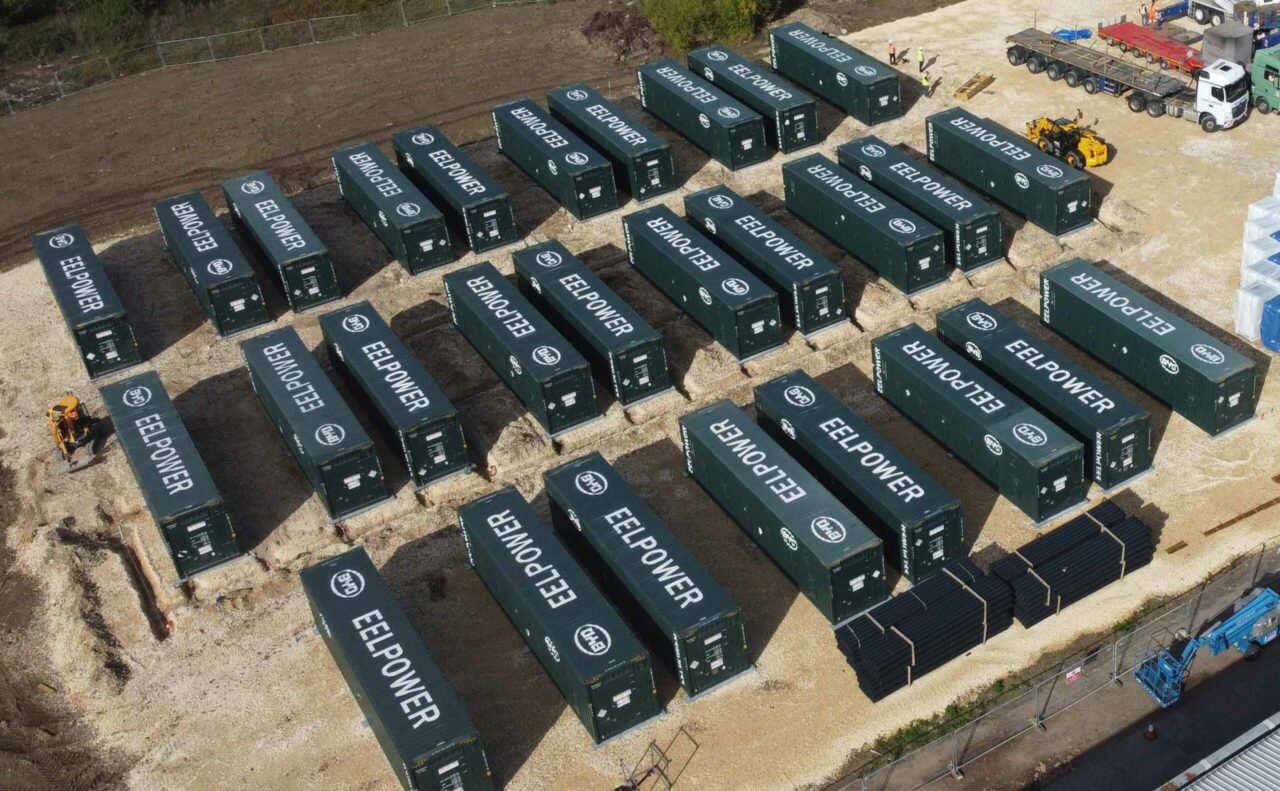
Image: Eelpower.
SUSI-Eelpower, a joint venture between SUSI Partners and Eelpower, and EDF Energy have brought Scotland’s “largest” standalone battery storage asset online, the companies said.
The battery energy storage asset, which is situated in Dundee and has an output of 50MW, is set to play a role in the UK energy system by providing a balancing service to National Grid allowing the greater integration of renewable generation.
SUSI-Eelpower selected EDF as the trading and optimisation partner with the firm set to provide market access and optimise operations via their market trading platform across all available revenue streams including balancing mechanism, trading and ancillary services.
“Dunsinane is the first of a series of large battery assets which will transform the ability of the grid to balance the rapid growth in intermittent renewable generation and help manage constraints at this critical part of Great Britain. With EDF’s support, Dunsinane will deliver on the promise that flexible battery assets represent for Scotland,” said Mark Simon, CEO of Eelpower.
Battery storage sites will play a role in storing the intermittent renewable energy generated from Scotland’s vast wind assets. With the country set to deploy 11GW of offshore wind by 2030, there is a necessity to scale the battery energy storage market to support the renewable generation.
Therefore, the “first” standalone distribution connected battery energy storage asset represents a significant building block of national energy infrastructure and a major milestone for Scotland’s renewable energy journey, EDF said.
Stuart Fenner, commercial director of Wholesale Market Service at EDF, said: “We are delighted to be partnering with SUSI-Eelpower ensuring they have a route to market for the first Scottish distribution connected battery. Battery storage plays a huge part in the road to net zero and helping to decarbonise our energy system and this is a major milestone for Scotland, as well as easing pressure on the National Grid.”
Energy research firm Rystad Energy recently predicted the UK battery energy storage market to grow to 24GW by the end of the decade and account for almost 9% of all global capacity installations.
Utility-scale battery systems could also present an opportunity for investment in the battery storage space with Rystad having said it could “attract investment of up to £16.15 billion by 2030.”
In terms of capacity by 2030, the UK is forecast to sit fourth in the table only behind China, the US and Germany.

